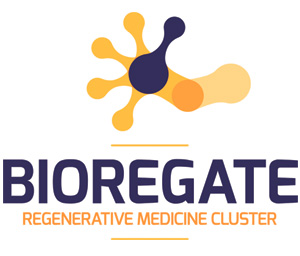Project abstract
Microscale approaches such as cell micro patterning or micro molding are powerful tools for in vitro studies of 3D architectures.
They thus allowed in the pharmaceutical field the development of techniques of microencapsulation of molecules which release can be controlled in time. On the other hand, these microscale approaches can be used to study cell behaviour with precise control of cell-microenvironment interactions in a spatially and temporally regulated manner. Cells in the organism are therefore exposed to tightly controlled conditions in three-dimensional (3D) architectures.
These micro molding approaches can be used to miniaturize assays and perform high-throughput experimentation, thereby enabling the study of complex biological systems by testing the influence of many factors simultaneously. Hydrogels, due to their hydrophilic and biocompatible features, are largely used at the macroscopic scale as 3D matrices for controlled release and tissue engineering applications, because they provide an appropriate environment for cells. The cross-linkable natural polymers are therefore very widely used. Recently, the development of micro molding technologies allowed the production of micromolded hydrogels (« micro-hydrogels ») with perfectly controlled 3D structures and elasticity.
Osteoarthritis (OA) is a degenerative joint disease affecting an increasing number of patients. OA is associated with inflammation, alteration of all joint tissues and very disabling pain. Current treatments of osteoarthritis allow at best pain relief but do not prevent the articular degeneration. Mesenchymal stromal cell (MSC)-based therapy is a promising new approach. Indeed, MSCs have regenerative capabilities via the secretion of trophic factors that have immunomodulatory, pro-angiogenic, anti-apoptotic, anti-fibrotic and potent anti-inflammatory activities.
However, the intra-articular injection of MSCs has major limitations:
- a massive cell death upon injection into the joint space and
- a cell leakage outside of the joint space because of the MSC propensity to migrate.
In this context, MSCs encapsulation in hydrogels of around 200 µm size, i.e compatible with their injection, could limit death and cell leakage and provide with a favorable microenvironment able to support their viability and biological activities.
Hence, the MONOMER project therefore intends to bring 2 laboratories from the Pays de la Loire area to combine their expertise in Engineering Sciences and Life Sciences. The laboratory Biopolymers Interactions Assemblies (BIA lab) has developed for several years the soft lithography technology for pharmaceutical delivery of active compounds.
The Regenerative Medicine and Skeleton lab (RmeS Lab) is interested in cell therapy approaches for the regeneration of bone and cartilage tissue. In this context, BIA and LIOAD labs recently decided to combine their approaches to develop new micro molded hydrogels compatible with the encapsulation of regenerative cells.
This method of soft lithography applied to the production of micro molded hydrogels for the treatment of osteoarthritis could then be extended to other applications in regenerative medicine, for example, to the liver or bone regeneration themes also developed at the regional level.
The main objective of the MONOMER project will be the control of the structures at the micrometric scale with the development of soft lithography methods to generate polysaccharide-based hydrogels structures.
We therefore go to
- develop the micro molding technology from polydimethylsiloxane (PDMS) molds on which micro-patterns of controlled size and shape will be printed;
- validate the human MSCs encapsulation in the micro molded hydrogels
- and evaluate the future of these encapsulated MSCs after their intra-articular injection in an arthrosis model surgically induced by the destabilization of the meniscus in mouses with an immune system close to those of human. We will also evaluate the efficiency of encapsulated MSCs to prevent disease progression.

